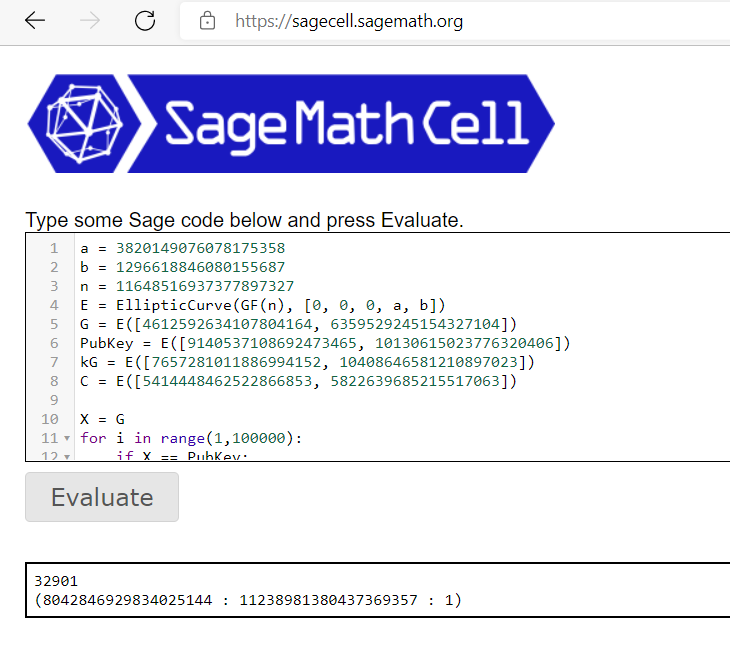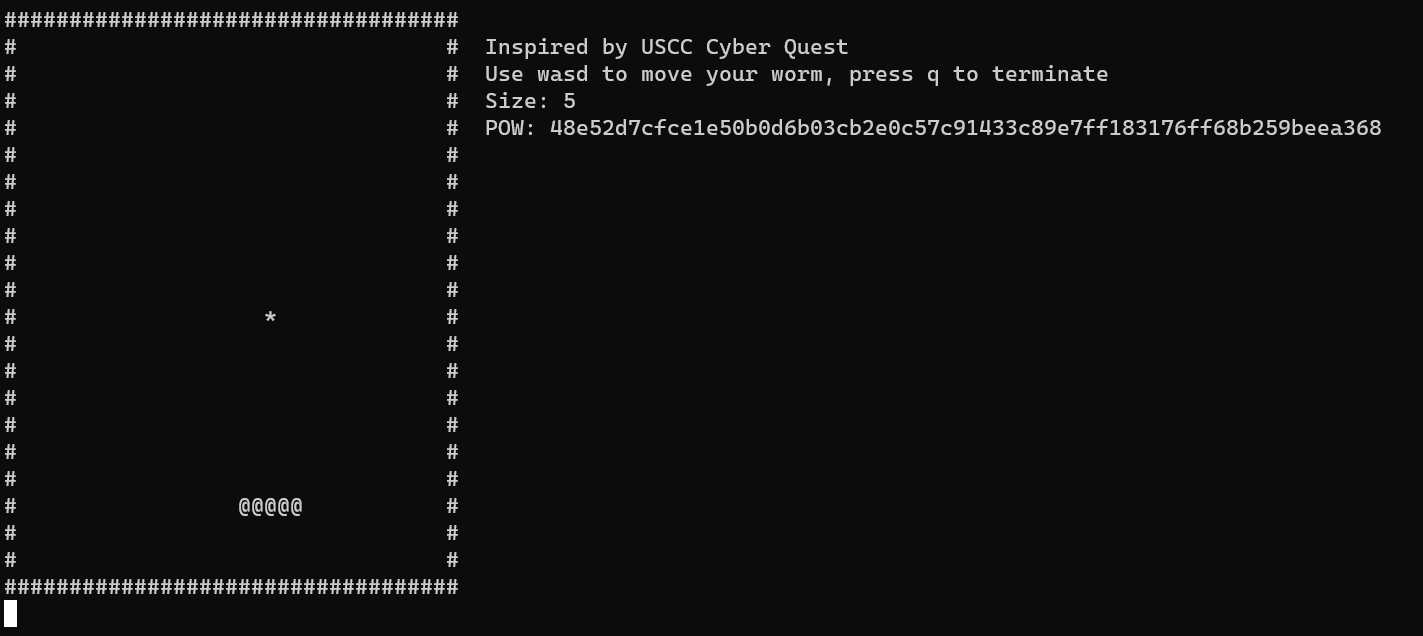I play this CTF last weekend, and we manage to get 46th place!

Here are some of my writeups
Challenges
An Unknown Disassembly
Description

Attachment
We got a text file, looks like python bytes code:
5 0 LOAD_GLOBAL 0 (input)
2 LOAD_CONST 1 ('Enter the super secret password:')
4 CALL_FUNCTION 1
6 STORE_FAST 0 (a)
6 8 LOAD_CONST 2 ('')
10 STORE_FAST 1 (b)
7 12 LOAD_CONST 3 (0)
14 STORE_FAST 2 (c)
8 16 LOAD_FAST 0 (a)
18 GET_ITER
>> 20 FOR_ITER 136 (to 158)
22 STORE_FAST 3 (x)
...
...
...
30 182 LOAD_GLOBAL 1 (print)
184 LOAD_CONST 14 ('You got the flag!')
186 CALL_FUNCTION 1
188 POP_TOP
31 190 LOAD_GLOBAL 2 (exit)
192 CALL_FUNCTION 0
194 POP_TOP
33 >> 196 LOAD_GLOBAL 1 (print)
198 LOAD_CONST 15 ('Oops, try again.')
200 CALL_FUNCTION 1
202 POP_TOP
204 LOAD_CONST 0 (None)
206 RETURN_VALUE
Analyse
After analyse the code, it just replace our input from:
3toeoreto3ato@or@toaoto0or0too
After that it compare the result to S0th3combination1sonetw0thr3efourf1ve, if equals then it will print the flag! (when connect to the netcat port)
Then I wrote a python script to reverse the convertion:
text = "S0th3combination1sonetw0thr3efourf1ve"
password = ""
for t in text:
if t == 'a':
password += '@'
elif t == '@':
password += 'a'
elif t == '0':
password += 'o'
elif t == 'o':
password += '0'
elif t == 'e':
password += '3'
elif t == '3':
password += 'e'
else:
password += t
print(password)
# Sothec0mbin@ti0n1s0n3twothre3f0urf1v3
But when I type the password in netcat, it is incorrect!
nc 0.cloud.chals.io 27178
Enter the super secret password:Sothec0mbin@ti0n1s0n3twothre3f0urf1v3
Oops, try again.
Solving
Looks like I missed an important part of the code:
25 >> 148 LOAD_FAST 2 (c)
150 LOAD_CONST 11 (1)
152 INPLACE_ADD
154 STORE_FAST 2 (c)
156 JUMP_ABSOLUTE 20
27 >> 158 LOAD_CONST 12 ('S0th3combination1sonetw0thr3efourf1ve')
160 STORE_FAST 4 (d)
28 162 LOAD_FAST 2 (c)
164 LOAD_CONST 13 (4)
166 BINARY_MODULO
168 LOAD_CONST 3 (0)
170 COMPARE_OP 2 (==)
172 POP_JUMP_IF_FALSE 196
29 174 LOAD_FAST 1 (b)
176 LOAD_FAST 4 (d)
178 COMPARE_OP 2 (==)
180 POP_JUMP_IF_FALSE 196
The variable c must be divisible by 4 then it only compare our input to the string, and we can control c by adding letter l
Because it doesn’t add l to the compare variable b and will add variable c so we can add l to control c:
21 >> 130 LOAD_FAST 3 (x)
132 LOAD_CONST 10 ('l')
134 COMPARE_OP 2 (==)
136 POP_JUMP_IF_FALSE 140
22 138 JUMP_FORWARD 8 (to 148)
24 >> 140 LOAD_FAST 1 (b)
142 LOAD_FAST 3 (x)
144 INPLACE_ADD
146 STORE_FAST 1 (b)
25 >> 148 LOAD_FAST 2 (c)
150 LOAD_CONST 11 (1)
152 INPLACE_ADD
154 STORE_FAST 2 (c)
156 JUMP_ABSOLUTE 20
Our input length is 37, so we need to add three l to our input to let c = 40:
nc 0.cloud.chals.io 27178
Enter the super secret password:Sothec0mbin@ti0n1s0n3twothre3f0urf1v3lll
You got the flag! shctf{1m_jUst_a_p14in_y0gurt_ch4l1eng3}
That’s it! Simple reverse challenge
Flag
shctf{1m_jUst_a_p14in_y0gurt_ch4l1eng3}
Easy Crypto Challenge
Description

Attachment
Got a text file, open it:
y^2 = x^3 + ax + b
a = 3820149076078175358
b = 1296618846080155687
modulus = 11648516937377897327
G = (4612592634107804164, 6359529245154327104)
PubKey = (9140537108692473465, 10130615023776320406)
k*G = (7657281011886994152, 10408646581210897023)
C = (5414448462522866853, 5822639685215517063)
What's the message?
As stated in the title, it is Elliptic Curve Cryptography
More specific it is using Elliptic-curve Diffie–Hellman
Solving
After some researching, found a wiki page explaining ECC
Also got python sage code for brute forcing private key:
a = 1234577
b = 3213242
n = 7654319
E = EllipticCurve(GF(n), [0, 0, 0, a, b])
base = E ([5234568, 2287747])
pub = E ([2366653, 1424308])
c1 = E ([5081741, 6744615])
c2 = E ([610619, 6218])
X = base
for i in range(1, n):
if X == pub:
secret = i
print "[+] secret:", i
break
else:
X = X + base
print i
m = c2 - (c1 * secret)
print "[+] x:", m[0]
print "[+] y:", m [1]
print "[+] x+y:", m[0] + m[1]
Remember the challenge description?
I was trying to tell him the importance of setting a large, random private key, but he wouldn’t listen.
Therefore, the private key should be brute forcable!
Then I modify the sage code to this:
a = 3820149076078175358
b = 1296618846080155687
n = 11648516937377897327
E = EllipticCurve(GF(n), [0, 0, 0, a, b])
G = E([4612592634107804164, 6359529245154327104])
PubKey = E([9140537108692473465, 10130615023776320406])
kG = E([7657281011886994152, 10408646581210897023])
C = E([5414448462522866853, 5822639685215517063])
X = G
for i in range(1,100000):
if X == PubKey:
secret = i
print(i)
break
else:
X = X + G
m = C-(kG*secret)
print(m)
If no Sage installed can use the online shell

As you can see, found the key is 32901 and decrypted message is 8042846929834025144 : 11238981380437369357!!
Flag
So the flag is shctf{8042846929834025144_11238981380437369357}
Shai-Hulud
Description

Attachment
We got an ELF file
file worm
worm: ELF 64-bit LSB shared object, x86-64, version 1 (SYSV), dynamically linked, interpreter /lib64/ld-linux-x86-64.so.2, for GNU/Linux 3.2.0, BuildID[sha1]=fa172228425ced68ff045064e58e7a55618ab7b0, not stripped
Try to run it:

It is a snake game… We can use WASD to control the snake
But I played awhile still no idea how to win this game, lets open it with Ghidra!
Static Analysis
main function:
undefined8 main(void)
{
int iVar1;
srand(0x2454);
SHA256_Init((SHA256_CTX *)buf);
clear();
wormsign();
vibration();
while( true ) {
if (worm._0_4_ == 0x295) {
print_flag();
return 0;
}
input_thread();
wriggle();
iVar1 = frame();
if (iVar1 == 0) break;
printf("\x1b[H\x1b[J");
draw();
usleep(100000);
}
return 0;
}
Can see the print_flag function, so when the worm size equals 0x295 then it will print the flag, I guess…
print_flag function:
void print_flag(void)
{
int local_c;
printf("shctf{");
local_c = 0;
while (local_c < 0x20) {
buf2[local_c] = buf2[local_c] ^ magic_bytes[local_c];
local_c = local_c + 1;
}
printf("%.32s}\n",buf2);
return;
}
As you can see, the flag just buf2 XOR with magic_bytes!!
magic_bytes is hard coded in the binary, but buf2 is not
After some analyzing, notice buf2 is displaying in the console, can see in the draw function
printf(" POW: ");
local_c = 0;
while (local_c < 0x20) {
printf("%02x",(ulong)(byte)buf2[local_c]);
local_c = local_c + 1;
}
And notice everytime I eat the asterik, the value will change, and every time restart the value is the same!!
Then saw vibration is the function to generate the coordinates of the asterik:
void vibration(void)
{
int iVar1;
int iVar2;
iVar1 = rand();
iVar2 = rand();
*(undefined4 *)(arrakis + ((long)(iVar1 % 0x21) * 0x14 + (long)(iVar2 % 0x14)) * 4) = 0xfffffffe;
return;
}
Can see it generate two random values then calculate the array index of arrakis to equal fffffffe (-2)
We can guess those values are coordinates x and y
In the frame function can see what happen when we eat the asterik:
if (*(int *)(arrakis + ((long)worm._8_4_ * 0x14 + (long)worm._12_4_) * 4) == -2) {
local_20 = (long)(worm._12_4_ + worm._8_4_ * 0x10);
SHA256_Update((SHA256_CTX *)buf,&local_20,8);
SHA256_Final(buf2,(SHA256_CTX *)buf);
vibration();
worm._0_4_ = worm._0_4_ + 1;
}
It will calculate SHA256 hash based on our coordinates (worm._8_4_, worm._12_4_)
So it calculate y + x * 0x10 and store in 8 bytes, then pass to generate the SHA256 hash
After that, it call vibration to generate a new asterik
First Attempt
In the main function, we can see the random seed number is hardcoded:
srand(0x2454);
Remember the coordinates of asterik is generate using rand()?
Therefore, we can predict the coordinates of all asterik, then calculate the hash, decrypt the flag!
I used python ctypes libary to generate the random numbers
from ctypes import CDLL
import hashlib
import struct
libc = CDLL("libc.so.6")
libc.srand(0x2454)
x = libc.rand() % 33;
y = libc.rand() % 20;
p = y + x * 16
p = struct.pack("q",p)
print(hashlib.sha256(p).hexdigest())
# 633fcc3c724a53d2dac9328292349c92a17486acdb634f7d33f8f40db7928677
Yes! The first hash is the same!
Now check the second hash in case:
from ctypes import CDLL
import hashlib
import struct
libc = CDLL("libc.so.6")
libc.srand(0x2454)
for i in range(2):
x = libc.rand() % 33;
y = libc.rand() % 20;
p = y + x * 16
p = struct.pack("q",p)
print(hashlib.sha256(p).hexdigest())
# 633fcc3c724a53d2dac9328292349c92a17486acdb634f7d33f8f40db7928677
# 3fe9233e7ee137c9f87037868a46ccf691b6a0fab013b94cc8aaf2089b4aa019
But it not matches.. the second hash should be ad484ca2df9b973f6c7047aef57580f59440b651d7d6b29bda63301e418b7280
Then I changed to update instead, but still not matches
from ctypes import CDLL
import hashlib
import struct
libc = CDLL("libc.so.6")
libc.srand(0x2454)
h = hashlib.sha256()
for i in range(2):
x = libc.rand() % 33;
y = libc.rand() % 20;
p = y + x * 16
p = struct.pack("q",p)
h.update(p)
print(h.hexdigest())
# 633fcc3c724a53d2dac9328292349c92a17486acdb634f7d33f8f40db7928677
# 538999d91c309b0edaa40e1a628c16f4d700b3f5ab629a6d3950432c234980b4
Then I stuck for awhile to debug the binary
Notice the SHA256 in C and Python got some differences, in C got something called SHA256_CTX is a variable in openssl SHA256 library
Everytime I debug the CTX value was not erased, but the documentation stated after called SHA256_Final it will erased
I guess will not work in python, no choice I have to code in C
Second Attempt
Then coded in C using the openssl library refer to stackoverflow
#include <openssl/sha.h>
#include <stdio.h>
int main(int argc, char const *argv[])
{
SHA256_CTX ctx;
srand(0x2454);
unsigned char output[256];
__int64_t buffer;
int x,y;
SHA256_Init(&ctx);
for (int i = 0; i < 2; ++i)
{
x = rand() % 33;
y = rand() % 20;
buffer = 16 * x + y;
SHA256_Update(&ctx, &buffer, 8);
SHA256_Final(output, &ctx);
}
fwrite(output,32,1,stdout);
return 0;
}
Compile by gcc -o test test.c -I/opt/ssl/include/ -L/opt/ssl/lib/ -lcrypto
Then run it:
./test | xxd
00000000: ad48 4ca2 df9b 973f 6c70 47ae f575 80f5 .HL....?lpG..u..
00000010: 9440 b651 d7d6 b29b da63 301e 418b 7280 .@.Q.....c0.A.r.
Yes! Looks like is the correct hash!!
Now we just need to change the loop number to 0x294 then get the hash to decrypt the flag!
./test | xxd
00000000: c298 d18e c8bf 9975 5041 545d 3c39 a805 .......uPAT]<9..
00000010: 737b deea a3be 4c40 2be2 4890 807f 7b8d s{....L@+.H...{.
Copy the hash and the magic_bytes to decrypt the flag:
magic_bytes = bytes.fromhex("b2eae5bfbb8cc60138720b2f0f549c6e4024ea84c7e17d3458bd2ee2b41248fe")
key = bytes.fromhex("c298d18ec8bf99755041545d3c39a805737bdeeaa3be4c402be24890807f7b8d")
for a,b in zip(magic_bytes,key):
print(chr(a^b),end='')
# pr41s3_th3_r3m4k3_4nd_1ts_fr4m3s
Thats it! That is the flag!
Flag
shctf{pr41s3_th3_r3m4k3_4nd_1ts_fr4m3s}
Conclusion
I think it was good for beginners to play. Some challenge was quite easy but some was harder than I expected it also quite fun to play 🙂